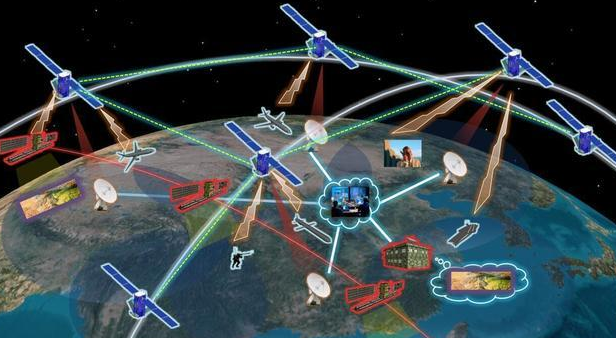China plans to launch 156 small satellites by 2025 to provide Internet services in low signal areas and places with adverse natural environment, according to an announcement by China Aerospace Science and Industry Corporation (CASIC).
根据中国航天科工集团公司(CASIC)的一份声明,中国计划在2025年前发射156颗小型卫星,为低信号区和自然环境恶劣的地区提供互联网服务。
Due to environmental conditions of deserts, mountains and seas, half of the world's population has no access to the Internet, and the information deficiency hampers local development, according to a press release CASIC sent to the Global Times.
根据在《环球时报》上的一份新闻来稿乘,由于沙漠、山脉和海洋的环境条件,世界上有一半的人口无法上网,信息匮乏阻碍了当地发展。
The project, named Hongyun, plans to send the first satellite by 2018, and launch four more to gain preliminary experience by 2020.
这个名为“虹云”的工程,计划在2018年发射第一颗卫星,在2020年之前发射四枚卫星来获得初步经验。

By the end of the 14th Five-Year Plan (2021-2025), CASIC plans to have all of the 156 satellitesin operation.
到第14个五年计划(2021-2025年)结束时,中国航天科工集团公司计划将所有156个卫星都投入运行。
"The satellites will also facilitate Internet access and communication for airplanes and ocean-going ships," Wang Yanan, chief editor of the Aerospace Knowledge magazine, told the GlobalTimes.
航空知识杂志的主编王亚男向《环球时报》透露:“卫星还将提升飞机和远洋船只的互联网接入和通信。”
The Hongyun Project, which focuses on communication, remote sensing and navigation, canoffer communication and Internet services for China and less-developed countries withreduced latency.
以通信、遥感、导航为重点的“虹云”计划,可以为中国和欠发达国家提供通信和互联网服务,减少延迟。
Meanwhile, the project can also benefit emergency communication, sensor data collectionand remote control of unmanned equipment, CASIC said.
中国航天科工集团公司表示,与此同时,该工程还可以帮助紧急通信、传感器数据收集和无人设备的远程控制。




